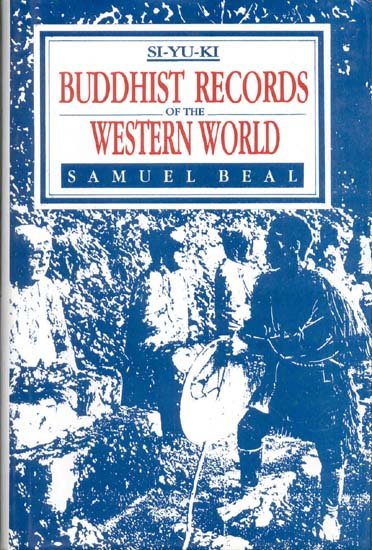Buddhist records of the Western world (Xuanzang)
by Samuel Beal | 1884 | 224,928 words | ISBN-10: 8120811070
This is the English translation of the travel records of Xuanzang (or, Hiuen Tsiang): a Chinese Buddhist monk who traveled to India during the seventh century. This book recounts his documents his visit to India and neighboring countries, and reflects the condition of those countries during his time, including temples, culture, traditions and fest...
Chapter 17 - Country of Po-fa-to (Parvata)
Note: Parvata is given by Pāṇini (iv. 2, 143) as the name of a country in the Panjāb under the group Takshaśilādi (iv. 3, 93).[1]
This country is 5000 li or so in circuit, its capital is about 20 li. It is thickly populated, and depends on the country of Cheka (Tse-kia). A great deal of dry-ground rice is here grown. The soil is also fit for beans and wheat. The climate is temperate, the disposition of the people honest and upright. They are naturally quick and hasty; their language is low and common. They are well versed in composition and literature. There are heretics and believers in common. There are some ten saṅghārāmas with about 1000 priests; they study both the Great and Little Vehicle. There are four stūpas built by Aśoka-rāja. There are also some twenty Deva temples frequented by sectaries of different sorts.
By the side of the chief town is a great saṅghārāma with about 100 priests in it; they study the teaching of the Great Vehicle. It was here that Jinaputra, a master of śāstras,[2] composed the Yogāchāryabhūmi śāstrakārikā; here also Bhadraruchi and Guṇaprabha, masters of śāstras, embraced the religious life. This great saṅghārāma has been destroyed by fire, and is now waste and ruined.
Leaving the Sindh country, and going south-west 1500 or 1600 li, we come to the kingdom of 'O-tien-p'o-chi-lo (Atyanabakela).
Footnotes and references:
[1]:
Ind. Ant., vol. i. p. 22.
[2]:
Jinaputra, in Chinese Tsui-shing-tszu; his work, the Yu-chie-sh'-ti-lun-shih, is a commentary on the Yogāchāryabhūmi S'āstra (Yu-chie-sh'-ti-lun) of Maitreya. Both works were translated into Chinese by Hiuen Tsiang.
